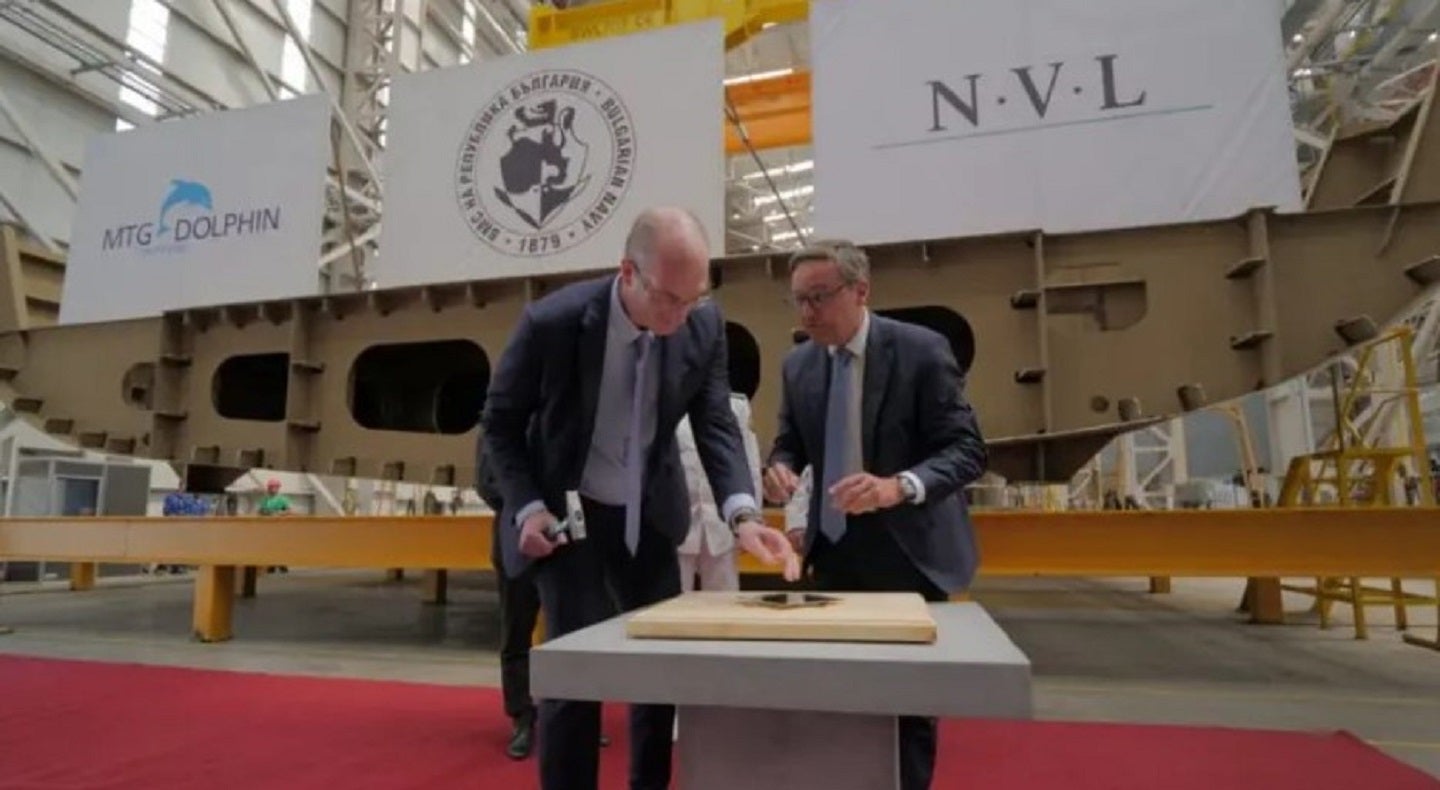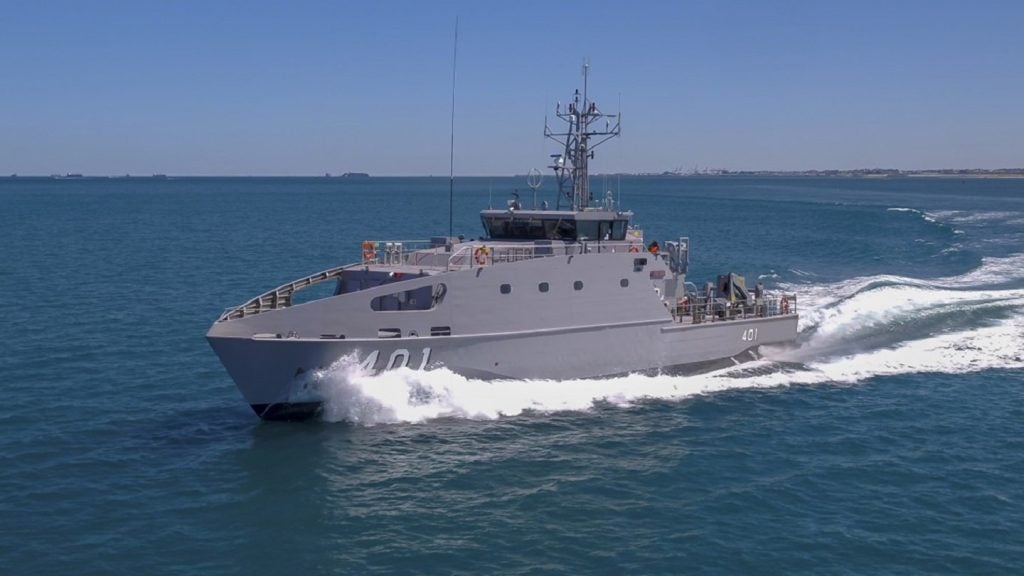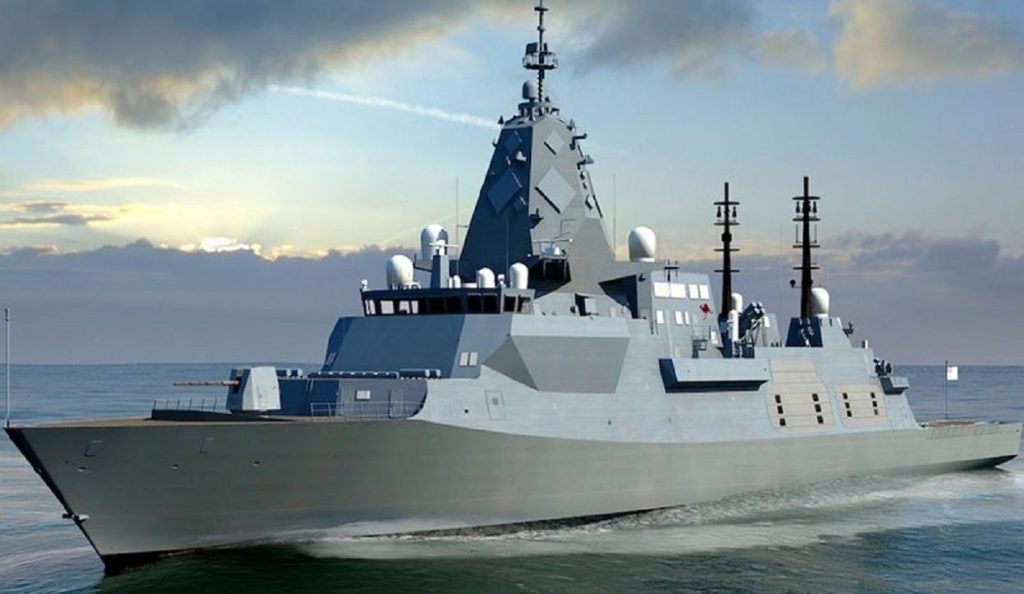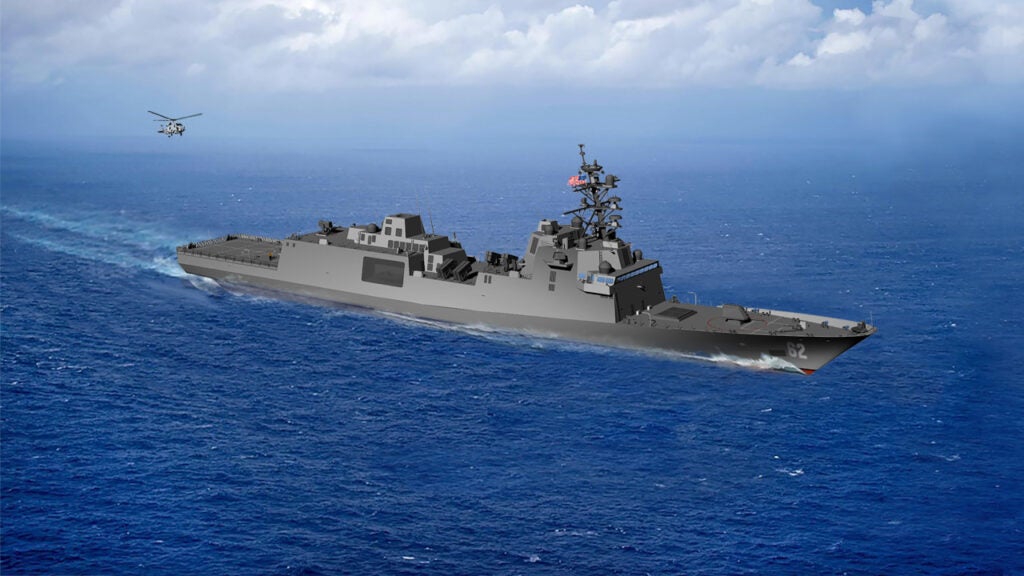
A year after NVL Group layed the first keel for the Bulgarian Navy’s first multi-purpose, modular patrol vessel (MMPV), the German shipbuilder layed its second keel at the end of last month in Varna, Bulgaria.
The traditional ceremony was attended by numerous guests from politics, the navy and local business, as well as the newly appointed Bulgarian Minister of Defence, Todor Tagarev.
Both vessels are being built at MTG Dolphin in Varna under the management NVL, formerly Lürssen Defence, with the involvement of many Bulgarian suppliers.
“Despite Covid-19 and all effects it has had on the supply chain, we are working to plan with another milestone achieved in time. Moreover, the excellent teamwork of all involved is key to ensure we meet these milestones.
“The keel-laying of the second MMPV vessel marks an important juncture for the programme. From now on, we will be working visibly on two ships in parallel. This lifts the challenge for all involved in the design and construction and everyone is excited about the steady increase of activities on the shipyard and in the offices,” explained Dirk Malgowski, Managing Director of NVL.
The construction of the second vessel began in December last year. The two 90-metre long vessels with a displacement of approximately 2,300 tons are based on a proven NVL design and feature an integrated combat management system. Both units are capable of countering air and land based threats as well as surface and undersea threats. Accordingly, the vessels are predestined for tasks within the framework of international alliance missions for Nato and the EU.
How well do you really know your competitors?
Access the most comprehensive Company Profiles on the market, powered by GlobalData. Save hours of research. Gain competitive edge.

Thank you!
Your download email will arrive shortly
Not ready to buy yet? Download a free sample
We are confident about the unique quality of our Company Profiles. However, we want you to make the most beneficial decision for your business, so we offer a free sample that you can download by submitting the below form
By GlobalDataGlobalData intelligence tells us that the Bulgarian Navy is in need of modernisation. Bulgaria’s force structure includes three units of corvettes acquired between 1989-90; six units light combat vehicles from 1984-91; one frigate acquired in 1990; 15 amphibious ships acquired in from as early as mid-1970’s. The latest naval acquisition currently in service are three Tripartite-class light combat vessels from between 2009-2020.
Counter-measure vessels against undersea threats
Bulgaria’s two MMPVs currently in development will provide critical underwater capabilities at a time where subsea warfare has had increased prominence throughout 2023.
GlobalData projects ‘The Global Underwater Warfare Systems Market’ value to grow from $4.9bn in 2022, which will grow at a compound annual growth rate of 3.41% in the next decade. It is expected to reach $6.8bn by 2032 and cumulatively value $64.9bn over the forecast period.
The market is expected to be dominated by Sonar, which accounts for 58.8% of the market. The demand for naval sonar systems will be driven by the increasing focus on developing robust anti-submarine warfare capability and fleet expansion initiatives much like Bulgaria’s.
On 13 June, the UK Defence Secretary, Ben Wallace, at a Joint Expeditionary Force meeting in Amsterdam, stated: “Today we face common challenges including Russian vessels mapping critical undersea and offshore infrastructure, indicating preparations for possible disruption and, at worst, sabotage.”
The Dutch defence minister, Kasja Ollongren, added: “Our critical undersea infrastructure could increasingly become a target. We have witnessed examples in recent months.”
JEF’s warning highlights the growing sector bubbling beneath the surface.





